Why was Nazanin Zaghari-Ratcliffe arrested? A timeline of her detention and sentence in Iran
British-Iranian national spent six years incarcerated in Tehran following her arrest in 2016
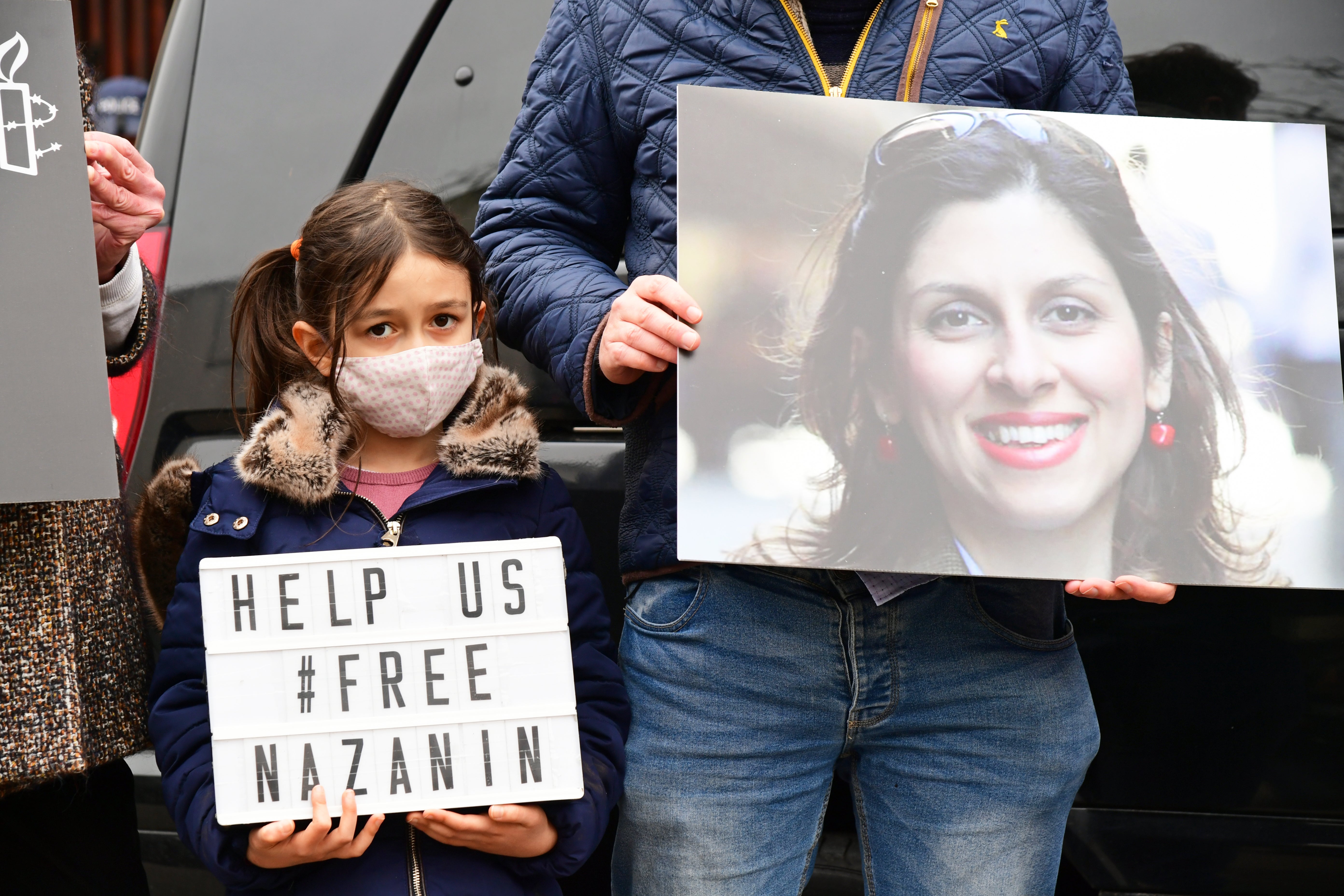
Your support helps us to tell the story
From reproductive rights to climate change to Big Tech, The Independent is on the ground when the story is developing. Whether it's investigating the financials of Elon Musk's pro-Trump PAC or producing our latest documentary, 'The A Word', which shines a light on the American women fighting for reproductive rights, we know how important it is to parse out the facts from the messaging.
At such a critical moment in US history, we need reporters on the ground. Your donation allows us to keep sending journalists to speak to both sides of the story.
The Independent is trusted by Americans across the entire political spectrum. And unlike many other quality news outlets, we choose not to lock Americans out of our reporting and analysis with paywalls. We believe quality journalism should be available to everyone, paid for by those who can afford it.
Your support makes all the difference.Nazanin Zaghari-Ratcliffe has been freed from detention and has reportedly left Iran for the UK.
British-Iranian aid worker Ms Zaghari-Ratcliffe has been detained for nearly six years in the country following her arrest at an airport in 2016.
She had her British passport returned to her this week and left Iran on a flight from Tehran airport on Wednesday, according to her family.
Ms Zaghari-Ratcliffe, a project manager with the Thomas Reuters Foundation, was convicted by an Iranian court of plotting to overthrow the clerical establishment. She has always denied all charges.
Her husband, Richard Ratcliffe, has been tirelessly campaigning for her release and went on a hunger strike in October last year to bring attention to his wife’s ordeal.
The couple have a young six-year-old daughter, Gabriella, who lives with her father in Hampstead, London.
Nazanin Zaghari-Ratcliffe’s ongoing detention has been linked to the UK’s failure to pay a £400million debt to Iran, although the government insists that the two should not be connected.
However the government have accepted liability for the debt, with foreign office minister James Cleverly saying that “we have a duty to legally repay this debt and we continue to explore all legal options to resole this 40-year-old case.”
Another British national, Anoosheh Ashoori, has also been reportedly released from detention in Iran. Mr Ashoori, who was sentenced to 10 years in Iranian prison, has always protested his innocence.
Here is a timeline of the key events since Nazanin Zaghari-Ratcliffe was arrested and sentenced to five years in prison in Iran.
April 3 2016: The mother-of-one is detained by the Iranian Revolutionary Guard at Imam Khomeini airport after a holiday visit to Iran where she introduced her daughter Gabriella to her parents.
July 12 2016: Richard Ratcliffe, her husband, delivers letters to Downing Street for outgoing prime minister David Cameron and his replacement Theresa May on his wife’s 100th day in custody. He says it is “astonishing” no British minister has publicly criticised Tehran for arresting Ms Zaghari-Ratcliffe.
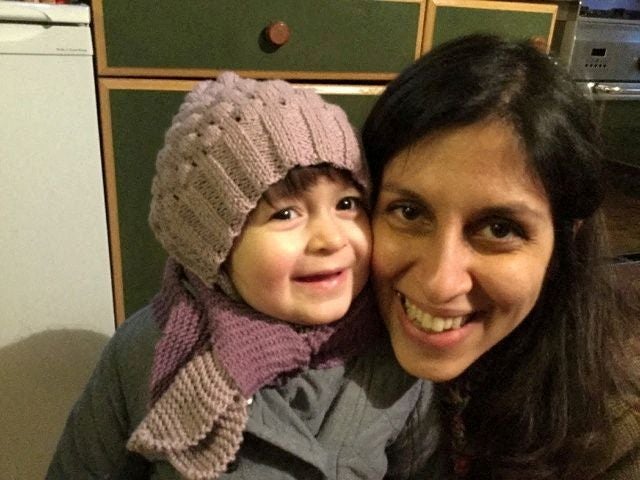
August 9 2016: New prime minister Ms May “raised concerns” about Ms Zaghari-Ratcliffe during a phone call with president of Iran, Hassan Rouhani.
September 9 2016: Mr Ratcliffe says his wife has been jailed for five years following a conviction on unspecified “national security-related” offences – a sentence he describes as “a punishment without a crime”.
November 13 2016: Ms Zaghari-Ratcliffe begins a hunger strike, which she ends after five days amid her family’s fears for her health.
January 2 2017: Mr Ratcliffe says Mrs May and her ministers could have “publicly stood up for Nazanin more” and should have called for her release. Mr Ratcliffe said: “She raised those concerns in September. What happened after September? Nothing much, really.”
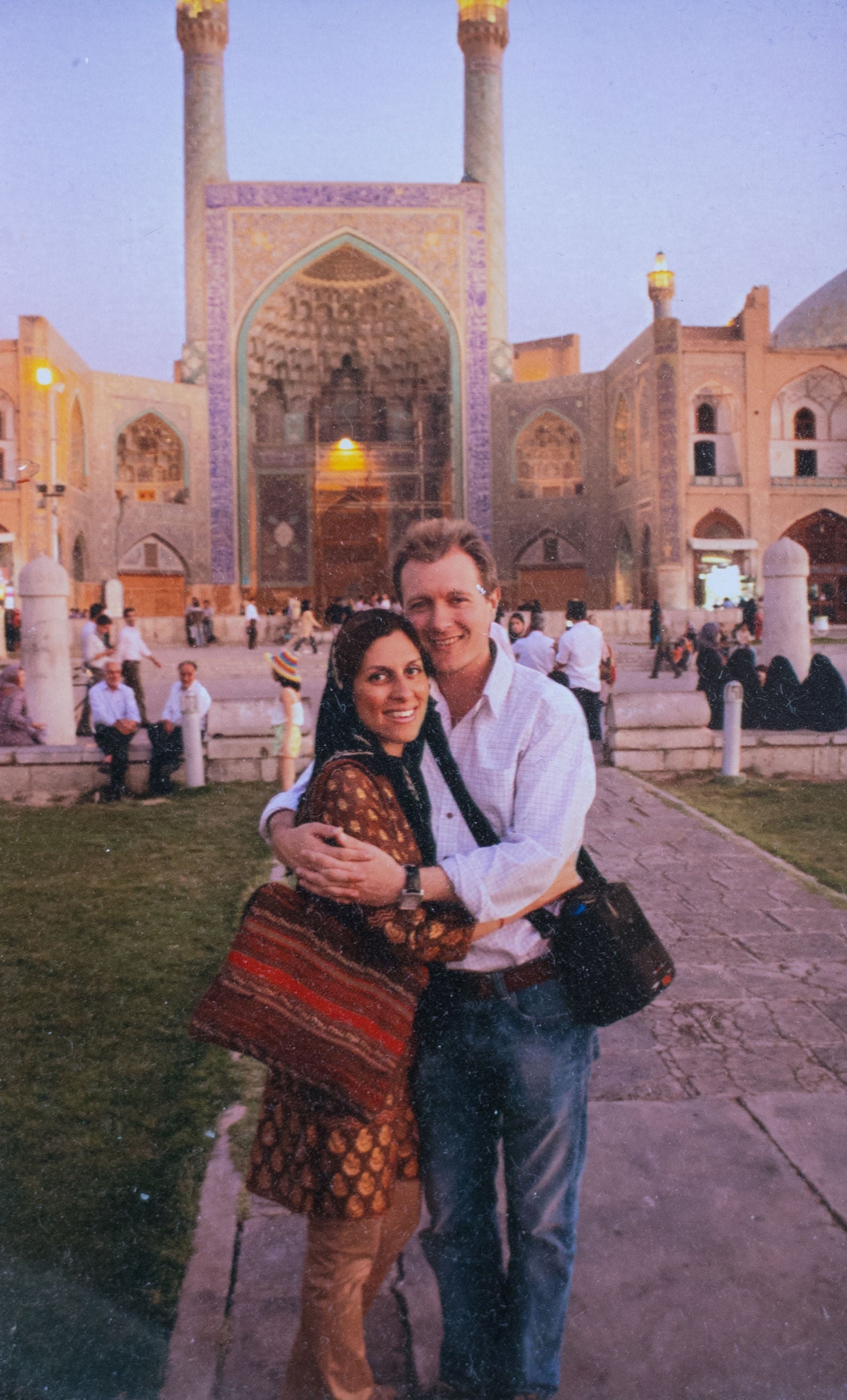
April 24 2017: The family of Ms Zaghari-Ratcliffe say she has lost the final stage of her appeal against the sentence.
November 6 2017: It is feared Ms Zaghari-Ratcliffe may face a further period of imprisonment because of remarks made by then-foreign secretary Boris Johnson. Mr Johnson told a parliamentary committee the previous week that Ms Zaghari-Ratcliffe was working in Tehran training journalists at the time of her arrest in 2016.
Four days later, she was summoned before an unscheduled court hearing, where the foreign secretary’s comments were cited as proof that she was engaged in “propaganda against the regime”.
November 7 2017: It is announced that Mr Johnson told his Iranian counterpart in a phone call that his comments to a Commons committee provide “no justifiable basis” for further legal action against Ms Zaghari-Ratcliffe. A Foreign Office spokesman says Mr Johnson accepted he “could have been clearer”.
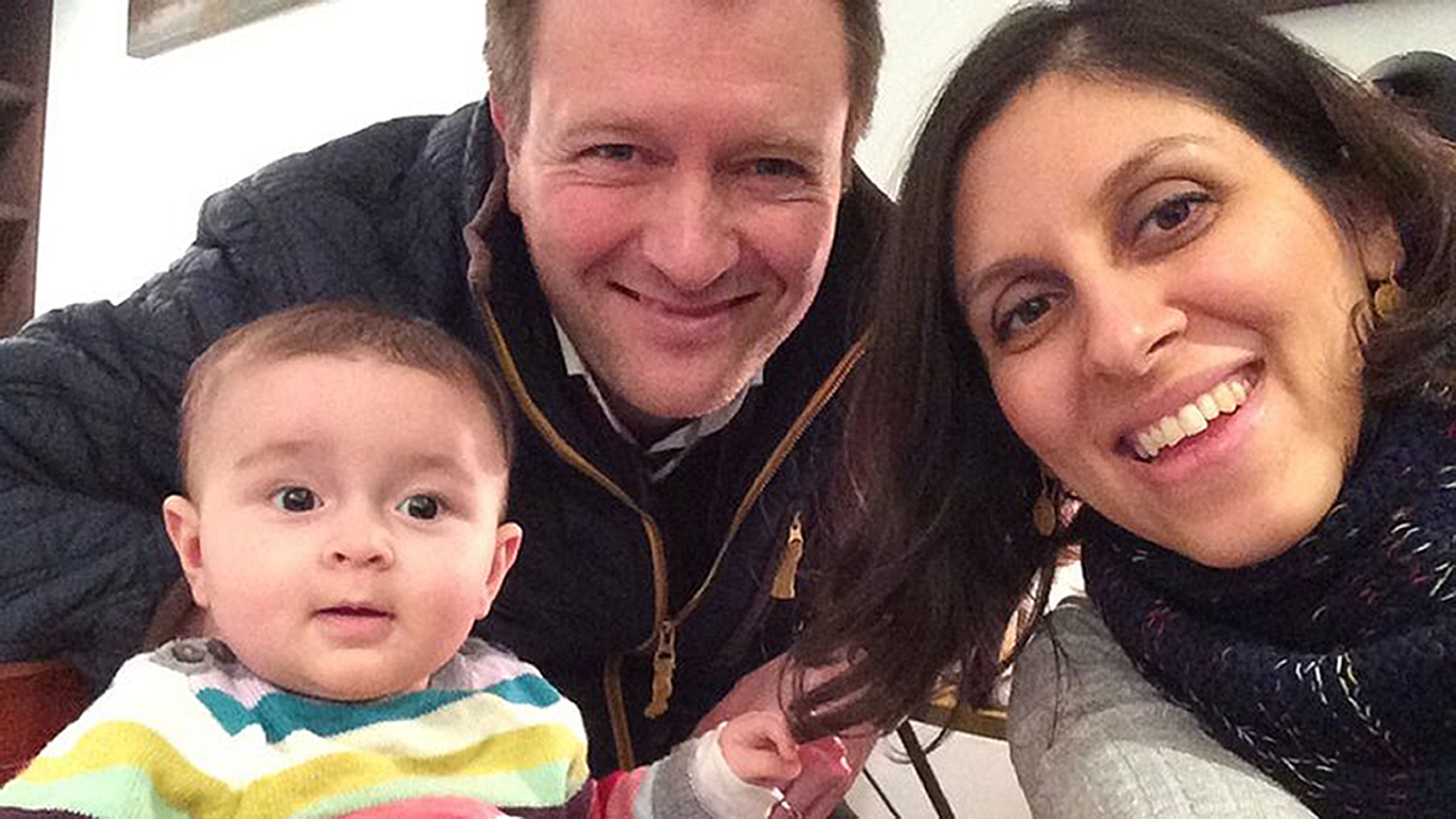
November 12 2017: Mr Ratcliffe says his wife has seen a medical specialist after finding lumps on her breasts and is “on the verge of a nervous breakdown”.
November 15 2017: Mr Ratcliffe describes an hour-long meeting with Mr Johnson as “positive and constructive”.
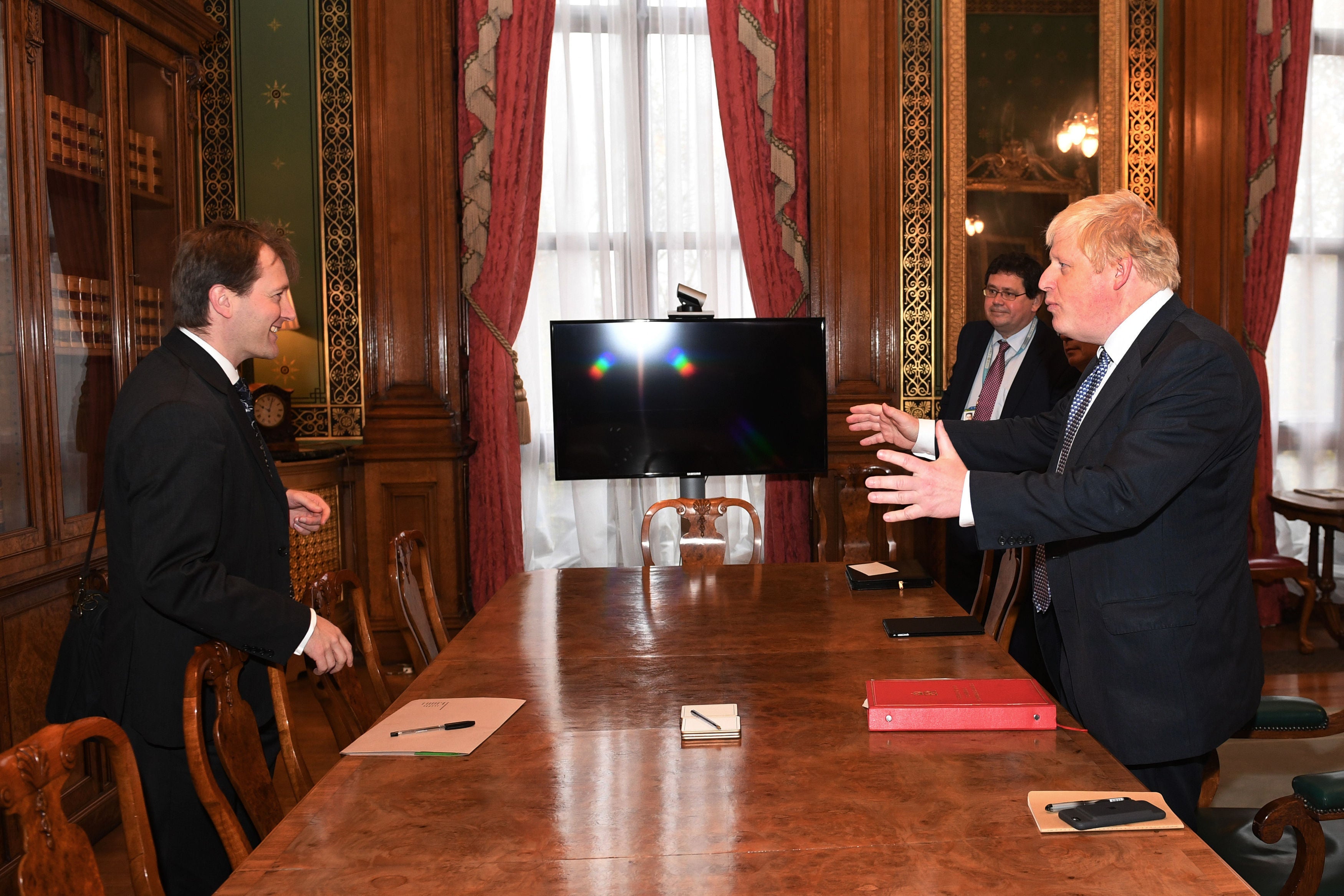
December 12 2017: Mr Johnson said he and his Iranian counterpart spoke “frankly” regarding the case of Ms Zaghari-Ratcliffe, during talks in Tehran.
Later in December 2017: Mr Ratcliffe said he believes there is “still a chance” his wife may be released in time for a dream Christmas together.
December 28 2017: Mr Ratcliffe says he is in limbo waiting for news of his wife’s release but has not given up hope, and describes the situation as “a lot more positive” than last year.
April 14 2018: Iranian ambassador to the UK, Hamid Baeidinejad, says the Iranian government is doing its best to secure Ms Zaghari-Ratcliffe’s release, saying the judicial process was “complicated” but insisted “we are trying our best”.
May 21 2018: Mr Ratcliffe says his wife has been told to expect another conviction after appearing in court over a new “invented” charge.
August 3 2018: New foreign secretary Jeremy Hunt pledges to do everything possible to secure Ms Zaghari-Ratcliffe’s release, after talks with Mr Ratcliffe.
August 21 2018: Mr Hunt says he is considering a request by Ms Zaghari-Ratcliffe’s husband to grant her diplomatic protection.
August 23 2018: Mrs Zaghari-Ratcliffe is given temporary release from prison for three days and her husband says it feels like “home is one step closer”. She returns to prison three days later.
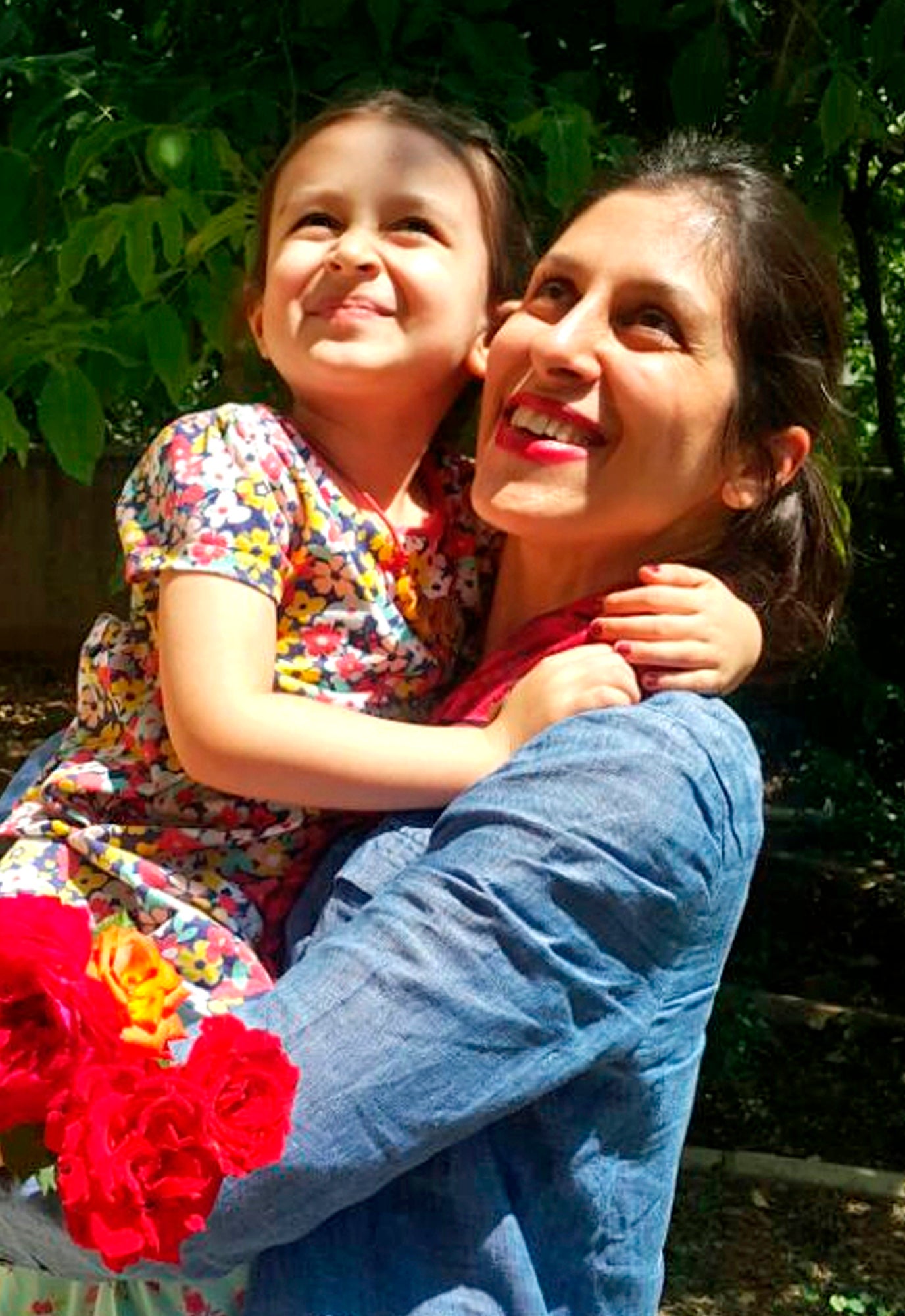
September 26 2018: Ms May and Mr Hunt ramp up pressure on Iran to release the charity worker during talks in New York. The PM tells Iranian president Hassan Rouhani she has “serious concerns” about the jailing of Ms Zaghari-Ratcliffe.
December 26, 2018: Ms Zaghari-Ratcliffe turns 40 in jail. Three days later, she marks her 1,000th day of incarceration.
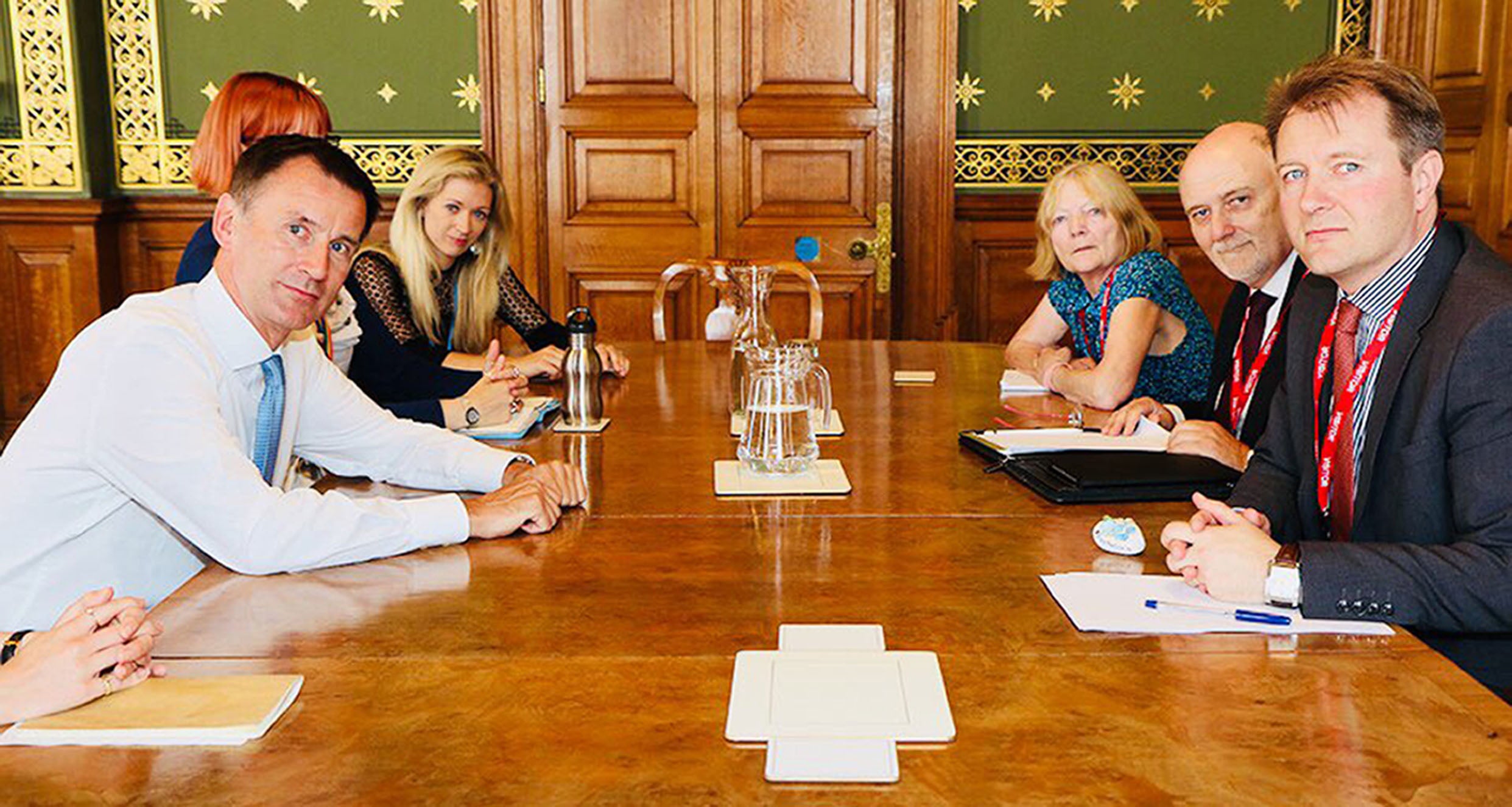
January 14 2019: She begins a hunger strike in protest over her treatment in jail. The action ends after three days.
January 24 2019: Iranian foreign minister Javad Zarif raises hope of Ms Zaghari-Ratcliffe’s return to the UK by suggesting she could be freed in exchange for an Iranian woman held in Australia on a US extradition request. The minister subsequently backs away from his comments.
June 15 2019: Ms Zaghari-Ratcliffe begins another hunger strike, this time lasting 15 days. She is joined, in a show of solidarity, by her husband, who strikes outside the Iranian Embassy in London.
June 24 2019: Mr Johnson, who came under fire as foreign secretary for his comments about Ms Zaghari-Ratcliffe’s case in 2017, becomes Prime Minister. Dominic Raab replaces Mr Hunt as Foreign Secretary.
September 23 2019: Mr Ratcliffe says Mr Johnson can make amends for his failings in his incarcerated wife’s case by telling Iran’s president “enough is enough” and securing her release.
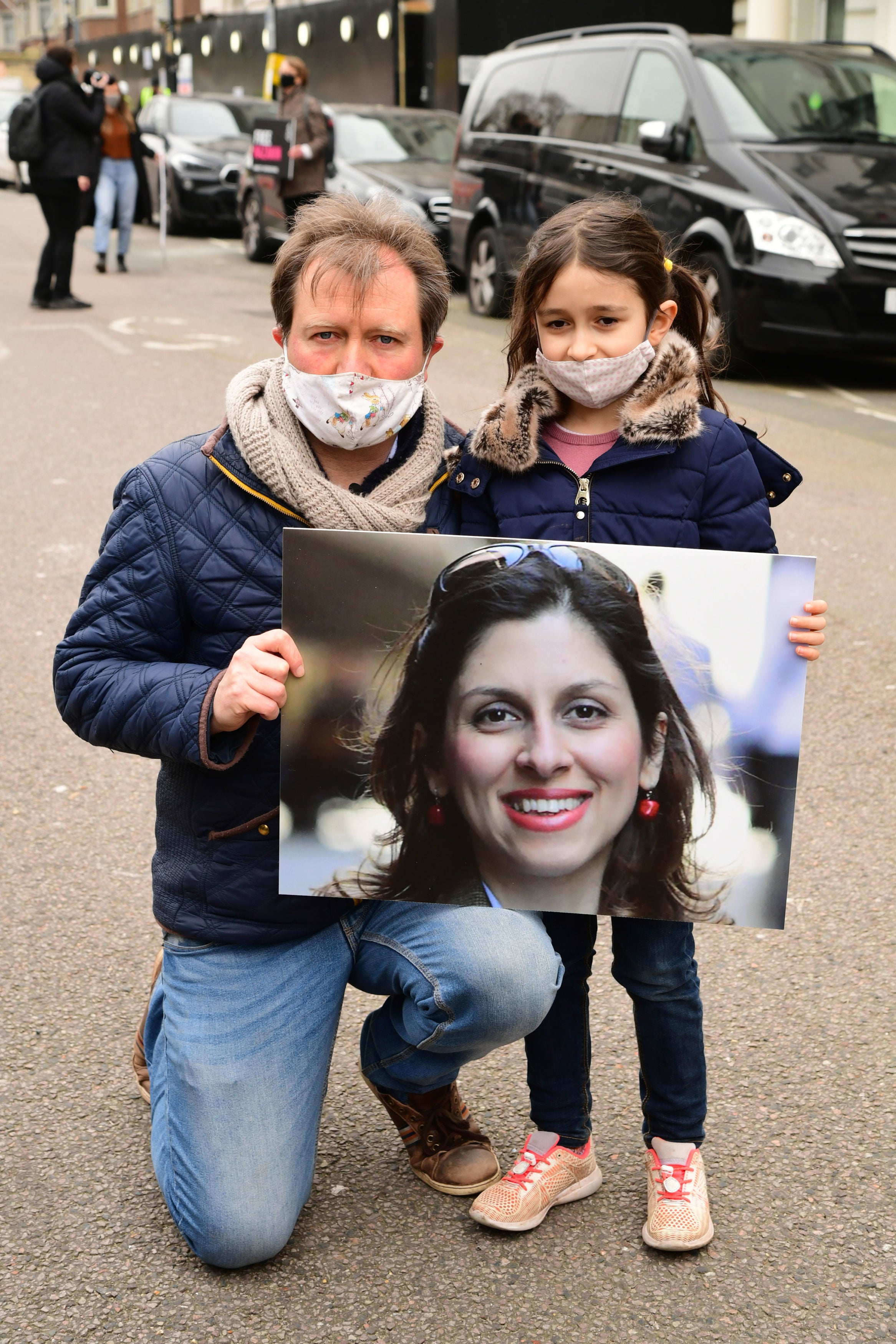
October 10 2019: The couple’s daughter, Gabriella, returns to the UK after more than three years living in the Middle East. The child, who is now seven years old, had been living with her grandparents in Tehran since her mother was arrested. Her father says: “It has been a long journey to have her home, with bumps right until the end.”
December 18 2019: Mr Ratcliffe is joined by Gabriella singing Christmas carols outside Downing Street, and he called on the Prime Minister to “please take responsibility for Nazanin’s case and do what you can to get her and others home”.
January 3 2020: A US air strike kills Iran’s top military chief, General Quassem Soleimani. Mr Ratcliffe says he is worried about his wife, and tells ITV’s Good Morning Britain: “I sit here partly worried for what that means for Nazanin, partly worried what that means for my in-laws, sat in their ordinary living room in Tehran where they’re all really worried.”
January 10 2020: Ms Zaghari-Ratcliffe spends one night in a clinic after suffering “palpitations and panic attacks” due to the tensions in Tehran, sparked by the death of Gen Soleimani, Mr Ratcliffe says.
January 23 2020: Richard Ratcliffe and their then five-year-old daughter Gabriella meet the Prime Minister in Downing Street, but Mr Ratcliffe says there was “no breakthrough”.
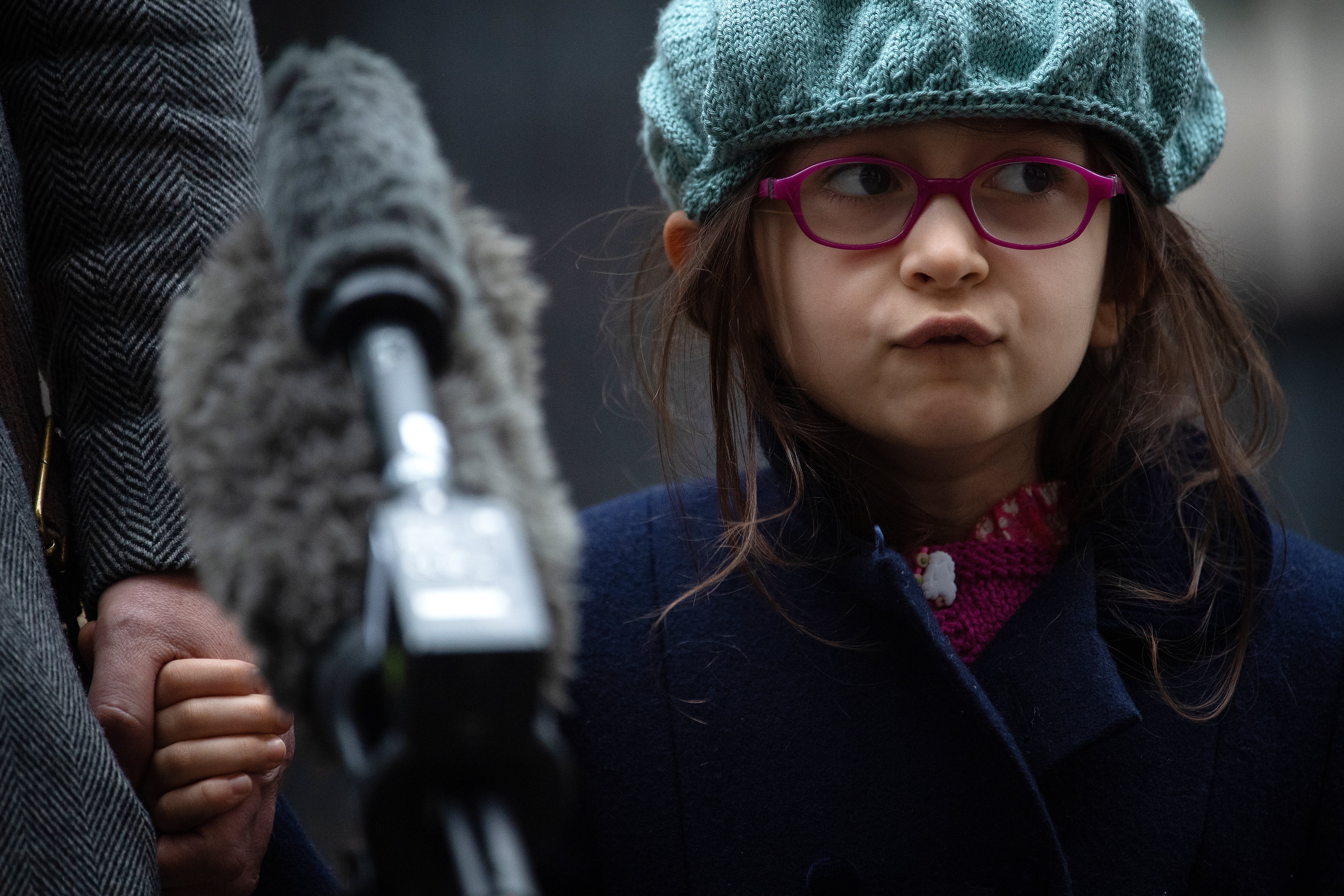
February 29 2020: Mr Ratcliffe says he believes his wife has contracted coronavirus in prison as he expresses concern at the jail’s “refusal to test her”.
March 3 2020: The couple’s Labour MP, Tulip Siddiq, says she believes Ms Zaghari-Ratcliffe may be temporarily released from jail due to the Covid-19 outbreak in Iran.
March 17 2020: Ms Zaghari-Ratcliffe is temporarily freed from jail. She says she is “happy to be out, even with the ankle tag” and can only go within 300 metres of her parents’ home.
March 28 2020: Ms Zaghari-Ratcliffe’s temporary prison release is extended to April 18 and Mr Ratcliffe says his wife’s file has been put forward to the Iranian prosecutor general to be considered for clemency.
April 21 2020: After a delay, Ms Zaghari-Ratcliffe’s prison release is extended again for around one month. Mr Ratcliffe reveals that the family are able to talk via video calls for about four to five hours a day.
May 20 2020: Mr Ratcliffe says his wife’s release has been extended indefinitely until there is a decision on her clemency. He describes the news as “a real step forwards… I don’t think it’s guaranteed one way and I don’t think she thinks it’s guaranteed one way, but let’s enjoy the moment”.
May 26 2020: Mr Ratcliffe says the family are on the “cusp of potentially good news” and thinks the family could find out about a decision on her clemency the following day.
August 24 2020: Lawyers for Ms Zaghari-Ratcliffe ask Defence Secretary Ben Wallace for a meeting and call on the British Government to stand up to Iran over its “abusive treatment”.
September 8 2020: Ms Zaghari-Ratcliffe appears before a branch of Iran’s Revolutionary Court in Tehran, where she faces a new charge.
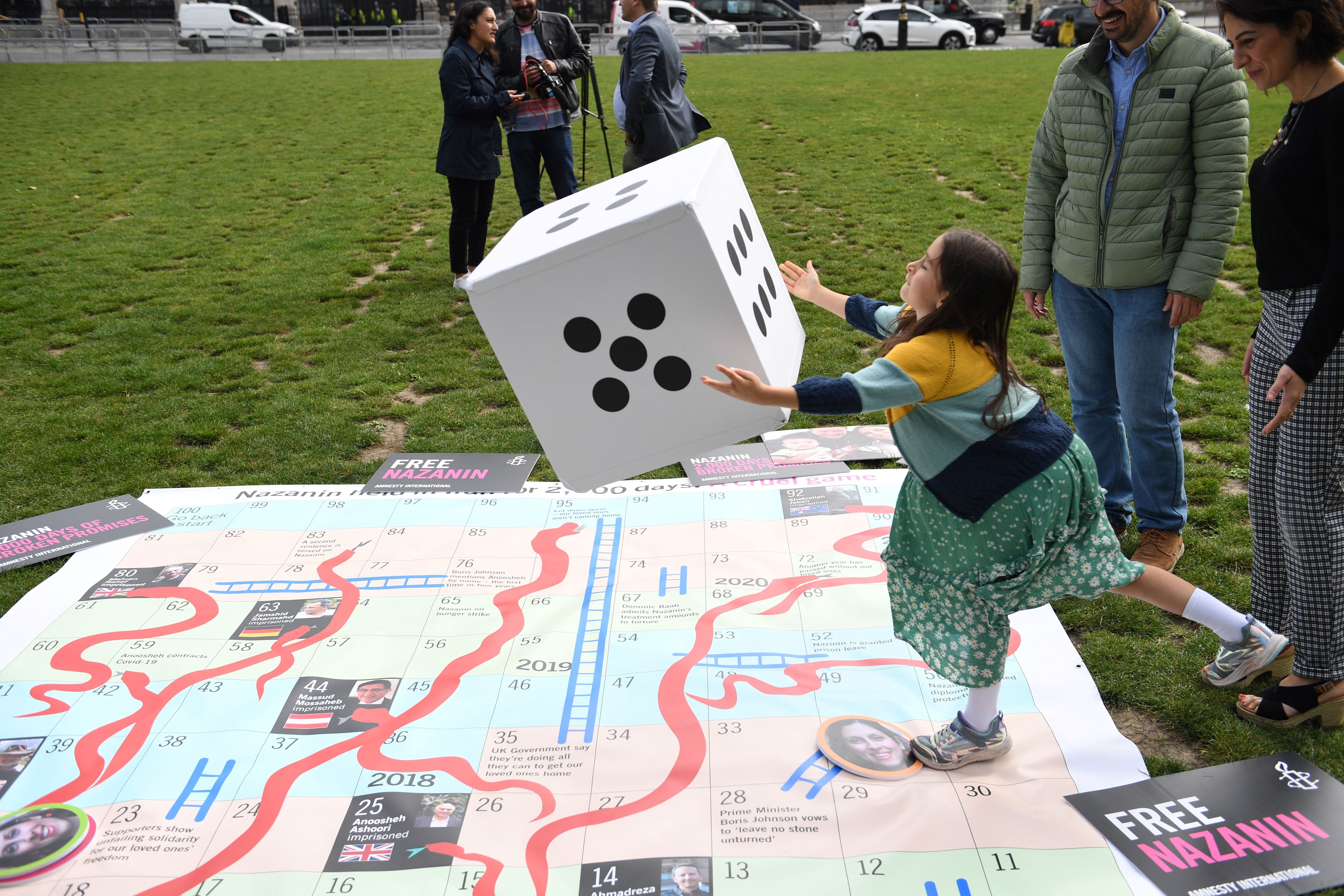
March 7 2021: On the day Ms Zaghari-Ratcliffe’s sentence is due to come to an end, her constituency MP Tulip Siddiq reveals she has had her electronic tag removed but faces a new court date.
Foreign Secretary Dominic Raab says her treatment is “intolerable” and calls on Iran to allow her to return to the UK.
April 26 2021: Ms Zaghari-Ratcliffe is given an additional one-year jail term and is also banned from leaving Iran for a year.
Her lawyer Hojjat Kermani says she received the second jail sentence on a charge of spreading “propaganda against the system” for participating in a protest in front of the Iranian Embassy in London in 2009.
Mr Johnson says the decision to sentence Ms Zaghari-Ratcliffe to another year in prison is “cruel, inhumane and wholly unjustified”.
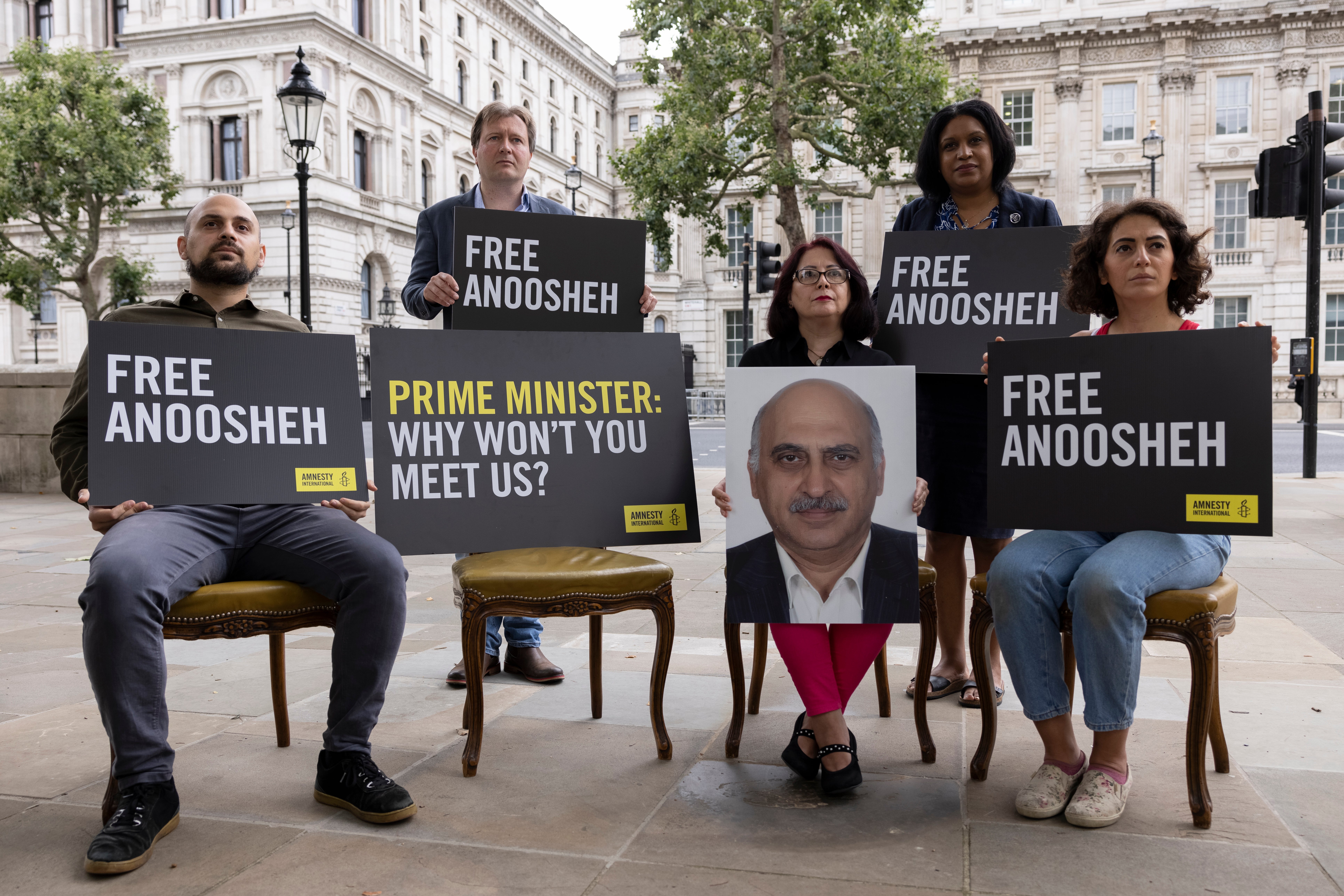
May 2 2021: Iranian state TV claims Britain will pay the £400 million debt relating to a cancelled order for 1,500 Chieftain tanks dating back to the 1970s, paving the way for Ms Zaghari-Ratcliffe’s release. But this is denied by UK officials and Mr Ratcliffe says he has “heard nothing”.
September 23 2021: Mr Ratcliffe marks 2,000 days since his wife was detained, the day after newly-appointed Foreign Secretary Liz Truss uses a meeting with her Iranian counterpart to raise the case.
October 16 2021: Ms Zaghari-Ratcliffe loses her latest appeal in Iran, with her sentence of one year plus a one-year travel ban “upheld with no court hearing”, her MP Tulip Siddiq says.
November 13 2021: Mr Ratcliffe ends a 21-day hunger strike outside the Foreign Office in central London, having been visited by supporters including Strictly Come Dancing co-host Claudia Winkleman, writer and presenter Victoria Coren Mitchell, and Labour leader Sir Keir Starmer.
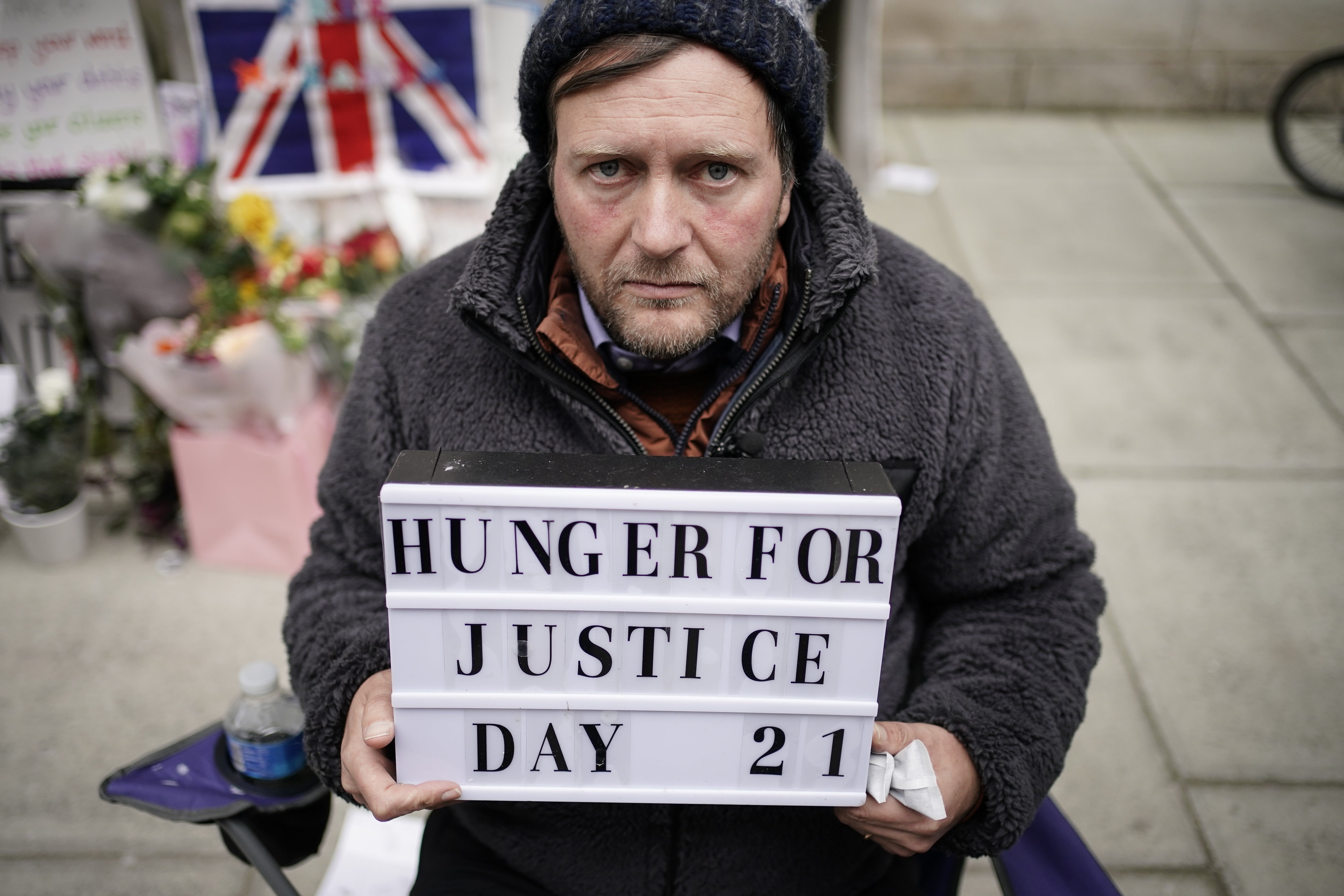
November 17 2021: Mr Johnson tells the Commons Liaison Committee it is “worth considering” sending a plane with a “crate of cash” to Iran to settle the £400 million debt.
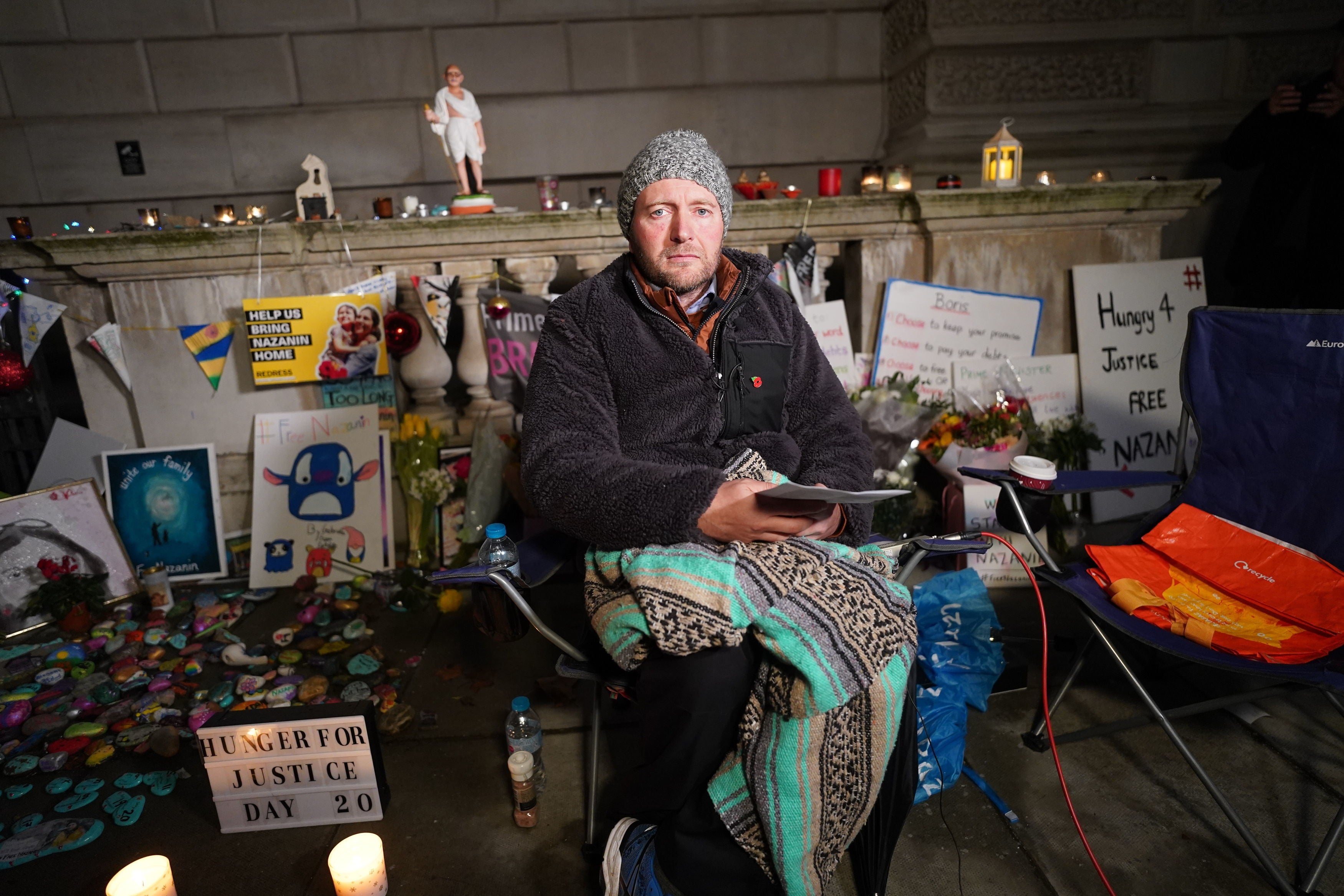
9 February 2022: Ms Siddiq asks Mr Johnson at Prime Minister’s Questions to intervene after she learns a deal agreed with the Iranian authorities in the summer of 2021 fell through. Mr Johnson responds that the “debt is difficult to settle” but ministers are working on it.
15 March 2022: Ms Siddiq says her constituent has had her British passport returned and a team of officials are in Tehran to negotiate.
16 March 2022: Ms Zaghari-Ratcliffe and fellow detainee Anousheh Ashoori are taken to Imam Khomeini International Airport in Tehran and handed over to a British team. Ms Zaghari-Ratcliffe’s family say she has left Tehran on a flight and Ms Siddiq confirms her constituent is “on her way home”. Iran’s english language broadcaster Press TV report the UK has “settled a long-overdue debt” of £400m.

